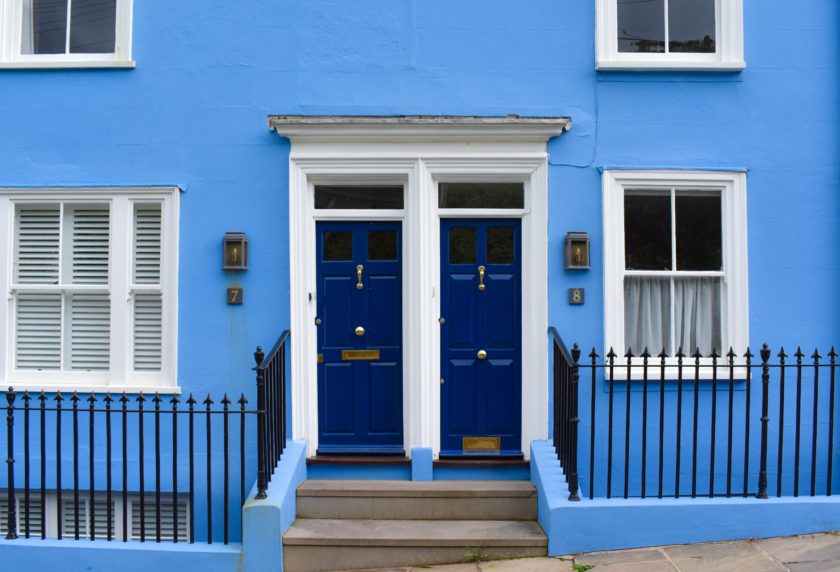Andrew Megson, executive chairman of My Pension Expert asks the question: Is property a “better bet” than a pension in retirement?
Presently, as inflation has climbed to record levels and interest rates remain low, many individuals would be forgiven for re-considering how well their pension plan will be able to see them through retirement.
Indeed, in the current climate, this predicament raises serious questions about the ability to achieve healthy returns, causing many individuals to wonder whether their savings would be best invested elsewhere. In particular, some prospective retirees are considering investing in property, rather than relying on a traditional pension.
This is not a new mode of thought. Back in 2016, former Chief Economist at the Bank of England (BoE) Andy Haldane had the industry up in arms after remarking that “property is a better bet than a pension”.
But is this a viable option to see individuals through retirement?
The benefits of property investment
Simply put, there is no simple resolution to this question. In the current economic climate, where high inflation and low interest rates are eating into the spending power of savers’ cash, there is a lot to be said about the merits of investing in the property market, where savers can earn a rental income and potentially long-term capital growth.
Particularly as house prices have surged since the first lockdown, after a stagnant period in the initial phases of the pandemic. Since then, buy-to-let properties in the UK have increased in value by a staggering 5.8% year-on-year. It is no surprise, therefore, that many consider this to be an attractive pension alternative.
Property investment can come at a high cost
That said, property investment can come with myriad unexpected costs, which may be a drain on an individual’s finances, making it harder to save for a successful retirement.
Given that property prices do not always reliably head upwards, particular in times of economic hardship, or during a recession, individuals should give this some careful consideration. Quite the contrary, it is not unusual for the property market to slow, and for properties to fall in value, leaving investors vulnerable to capital loss. Even further still, negative equity may become a possibility, meaning that pension planners may have paid more money for the property than it is worth.
Likewise, there are naturally a number of other associated costs that come with running a property, which can all add up to some sizeable fees. For example, individuals will likely need to invest in landlord’s insurance, maintenance fees for wear and tear, property management, letting fees, and even decorating and furnishing the property. Considering the fact that letting fees alone usually fall somewhere in the region of 15%, as well as the likelihood of void periods where the property is vacant, some investors may find themselves in hot water, if their pension planning solely relies on the income from their property.
Prospective retirees are unlikely to experience these issues with a more straightforward pension. Certainly, even in the aftermath of the COVID-19 pandemic, many individuals have still seen their pension grow this year, so this is something worth considering.
Weighing up risk and reward
Additional costs do not stop here.
For those considering relying on property to fund their retirement, taxation should be a prime concern, given the fact that individuals usually enjoy some tax relief on their pension. On the other hand, landlords and those who own a second home will usually end up footing a higher tax bill, as a result of legal, stamp duty, and survey fees, as well as a number of other taxation charges.
There is a 3% stamp duty surcharge, for example, for second homes, as well as an increase capital gains tax. Naturally, these fees accumulate, making the cost of buying and owning an investment property a costly endeavour. Put simply, this can lead to diminished returns in retirement.
Liquidity risk should also pose some concern to those looking to invest as their sole source of retirement income. When it comes to retrieving the funds, individuals will have to plan well ahead, as it can often take a significant period of time to sell a property. Likewise, it will be important to have a back-up plan in mind, should a sale fall through or the markets crash.
Seeking financial advice
Due to the risks at stake, I would advise anybody considering using a property portfolio as part, or the main source of their retirement income, to seek independent financial advice.
Doing so will ensure that individuals have a thorough overview of their capacity to take such risks, especially given the fact that investing in property will often mean taking out a substantial portion of cash from their retirement funds. Naturally, this can result in significant implications and tax penalties.
After speaking with an adviser, some individuals may conclude that shunning a traditional pension entirely is too risky. If this is the case, an independent financial adviser (IFA) should be able to come up with a range of more appropriate investments to see them through retirement. Positively, retirees are likely to benefit from more tax relief from a traditional pension, as these investments are protected from the likes of capital gains tax and stamp duty.
Property can be a fantastic way to make some good returns, as part of a wider investment portfolio, but that said, individuals should be wary of making this the sole source of their retirement income. In many cases, the risks that come along with taking this route might just outweigh the reward.
Andrew Megson is the Executive Chairman of My Pension Expert. Founded in 2010, My Pension Expert specialises in providing independent advice to UK consumers about their pension plans – it arranges millions of pounds worth of retirement income options each week.
































